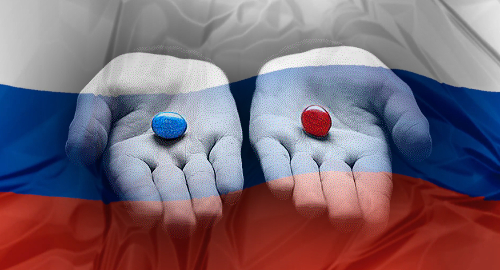 Russia’s online bookmakers are facing a civil war over their government’s efforts to dismantle their self-regulatory organizations (SRO).
Russia’s online bookmakers are facing a civil war over their government’s efforts to dismantle their self-regulatory organizations (SRO).
This week, Russian’s regulated online sports betting market was thrown a wobbler after the Ministry of Economic Development announced it was preparing legislation to eliminate the three SROs – two sports betting, one sweepstakes – which were set up a few years ago as the government launched its new regulated online betting market.
The SROs were instrumental in setting up the two centralized payment hubs known as TSUPIS through which all betting transactions must be routed to comply with Russian law. But now that these systems are in place, the government claims that the SROs are duplicating the functions of the Federal Tax Service.
On Friday, Yuri Krasovsky, president of Russian bookmaker Liga Stavok and also of the First SRO of Russian Bookmakers, told Russian affiliate Bookmaker-ratings that the government’s plan to abolish the SROs was “a strange initiative” and the rationale behind this move “did not seem to us real and objective.”
Krasovsky noted that as recently as 2014, Russian-licensed bookmakers controlled as little as 20% of the online betting market. But this number has since risen to 60%, which Krasovsky maintains is a direct result of the introduction of SROs. Krasovsky went as far as to wonder if the push to abolish the SROs was being promoted by “black [market] bookmakers, because the illegal business is beginning to suffocate.”
The head of the sweepstakes SRO wrote an op-ed for Betting Business Russia this week in which he noted that the government’s own plan for a national self-exclusion register for problem gamblers required these gamblers to register with the SROs. He also argued that the SROs played a key role in handling customer complaints against individual bookmakers and ensuring sports bodies got their appropriate cut of wagering proceeds.
Nikolai Oganezov, chairman of a bookmaking subcommittee of Russia’s Chamber of Commerce and Industry, said abolishing the SROs would bring “chaos” to Russia’s betting market, due to there being “no other proposed model of consolidation of [bookmakers] and the mechanism for implementing and controlling interactive rates.”
However, Konstantin Makarov, president of Russian bookmaker Bingo Boom and the chairman of the rival Bookmakers SRO, has taken the opposite view, saying “the effectiveness of an SRO, including as an industry regulator, is incomprehensible.” If the government proceeds with its plan to abolish the SROs, Makarov said Bingo Boom “will support this decision.”
The government is set to convene another hearing early in the new year to discuss the SRO issue with legislators, industry figures, Russia’s Central Bank and other government agencies.